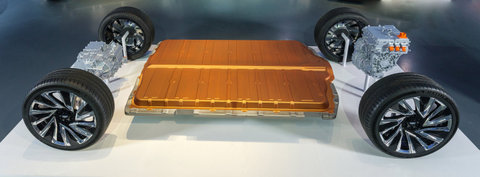EV Mythbusting: EV Batteries Aren’t Actually Green
Digging into the Heart of the Electric Car
We’ve all heard the calls reporting the imminent danger we face from a changing climate. Hundreds of scientific studies indicate that unless we as a global society lessen our environmental impact substantially in the coming decade our world may no longer be quite as hospitable. There are many, many things that we can do to address some of these concerns, one of the most impactful is to lessen our carbon emissions in the transportation sector.
Fortunately, this is where our society is starting to make real headway. Electric vehicles, which run on large, rechargeable batteries rather than combustible fossil fuels, are poised to make a significant dent in our emissions. Many government entities are pushing funds toward more research and development as well as incorporating infrastructure to help speed the process along.
However, there are a number of critics out there. Some believe that electric vehicle batteries aren’t actually all that green and argue that a lack of climate risk disclosures in the manufacturing process leads people to believe electric vehicles are better than they actually are. Although there are certainly some valid concerns associated with accessing minerals needed to develop batteries and processes for the creation of batteries in some countries, the overall impact of EV batteries is less than that of traditional technologies.
Reducing Emissions
Perhaps the most exciting aspect of electric vehicles is that they directly address the problem of vehicle emissions that contribute to increased carbon dioxide in the atmosphere. Electric vehicles produce no tailpipe emissions, which ultimately means the cars driving around are not producing the emissions that gas-powered vehicles are. Electric vehicles are often made with fewer parts, which can also make them simpler machines that are less prone to breakdowns.
The devil is in the details when it comes to determining if electric vehicles are actually reducing emissions overall. Mining for many of the materials needed to produce electric batteries is energy-intensive, demands a lot of water and can raise a number of ethical and environmental concerns. Unfortunately, much of the energy needed to extract the raw materials used to create batteries still comes from fossil fuel sources.
Despite some of the larger concerns associated with manufacturing electric vehicle batteries, many experts still believe the benefits outweigh the costs. In many countries, a large mix of electric sources including wind, solar, hydropower and nuclear means that the energy needed to charge and maintain the vehicles is clean. Government incentives are also working to help increase the availability of clean electricity sources, which will continue to add to the benefit of electric vehicles.
Reusable Materials
Because there is a finite amount of rare earth metals that are required for electric vehicle manufacturing, it is anticipated that companies will develop strategies for recycling the batteries as they start to age. Today many venture capitalists are getting into the battery recycling game, kicking off a race of development before many newer electric vehicle batteries start to age.
Companies such as Redwood Materials and Li-Cycle are working to extract valuable materials from used batteries using burning, acid wash and leaching techniques. Through leaching, Li-Cycle believes it can recover over 95% of the valuable material in batteries. In 2020 Redwood Materials was on track to recycle over 1GWh worth of battery scrap. The goal is to put hundreds of tons of precious battery materials back into circulation to help meet the growing demand across the globe.
One of the largest challenges with recycling lithium electric vehicle batteries is that most companies aren’t designing them with recycling in mind. The U.S. Department of Energy’s ReCell Center was created to help address this concern. The goal is to research strategies to make the cells easier to recycle and drive down materials costs, making electric vehicles more affordable over time.
The electric vehicle revolution is very exciting for many consumers looking for a cleaner alternative. Though there are certainly some issues with the production of electric vehicle batteries, the general scientific consensus is that they are still better than combustion engines over time. As technology continues to improve, the benefits of electric vehicles are anticipated to continue increasing.
The post EV Mythbusting: EV Batteries Aren’t Actually Green first appeared on Clean Fleet Report.






